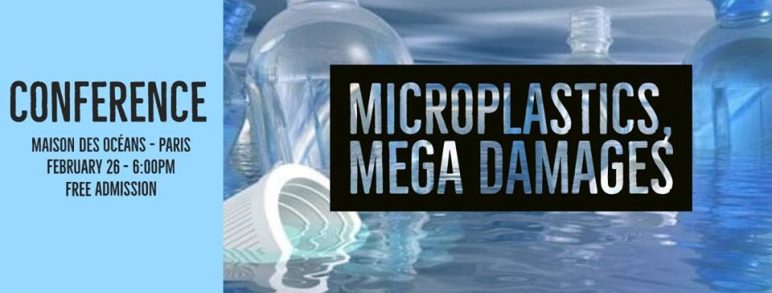
The Embassy of Canada in France, in partnership with the Institut Océanographique de Monaco, recently hosted a conference series titled “Microplastiques, Mega Dégâts” (“Microplastics, Mega Damages”) in both Paris and Monaco. The conference series featured three Canadian plastic pollution researchers; Dr. Jennifer Provencher of Environment and Climate Change Canada, Dr. Peter Ross of Ocean Wise, and Jessica Melvin of the Placentia Bay Ocean Debris Survey (PODS).
The conference series consisted of two main events: (1) a sold-out public seminar hosted at the Maison des Océans in Paris and attended by the Ambassador of Canada to France as well as the Ambassador of Monaco to France, and (2) a discussion and round table with local researchers at the Institut Océanographique de Monaco.

Jess’ talks were titled “The Importance of Place-Based Monitoring and Local Contextualization of Marine Debris: A Case Study of the Placentia Bay Marine Debris Survey (PODS)”. She discussed the challenges faced by the PODS team (Jessica Melvin, Justine Ammendolia, Madeline Bury, Charles Mather, Max Liboiron, France Liboiron & Alexandra Hayward) in developing a long-term monitoring program for marine debris in a northern climate where internationally recommended protocols do not suit local environmental and cultural conditions. This was a topic that sparked much discussion at the round table in Monaco, where the limitations of the current monitoring procedures for microplastics in shoreline sediments had been noticed by those working in the Mediterranean as well.
Jess also spoke about PODS’ work on the local contextualization of marine debris through the project’s collaboration with local fish harvesters and communities as well as through the use of openly accessible citizen science tools and protocols in all of the project’s activities. This was a concept that caught the attention of listeners in both conference events. Marine plastics are a frequent topic of conversation not just among academic circles, but among community groups and the public. As such, many groups (and individuals) are looking to contribute to marine plastic action plans in their region. Citizen science protocols open up marine debris monitoring to groups outside of academia and/or to groups without much in the way of monetary backing, allowing not only for more research to happen, but for often for better research that is enriched with local knowledge and expertise
Jess is expected to go into further detail on this work at the 2019 MARE People and the Sea Conference in Amsterdam this June

